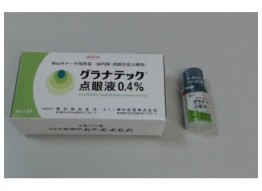Theophylline Nichiiko sustained release tablets 200 mg for asthma, bronchitis and emphysema
What are Theophylline Nichiiko sustained-release tablets 200 mg for asthma, bronchitis, and emphysema?
Theophylline, a derivative of xanthine, exerts its pharmacological effects by functioning as both a phosphodiesterase antagonist and a nonselective receptor antagonist. Through these mechanisms, it plays a role in modulating intracellular signal transduction pathways, promoting lipid metabolism activation, and contributing to the reduction of inflammatory responses.
The effectiveness of Theophylline tablets extends to a range of respiratory conditions, including bronchial asthma, chronic bronchitis, asthmatic bronchitis, and emphysema. Its primary therapeutic impact lies in bronchodilation, which leads to the alleviation of associated symptoms such as persistent cough, viscous phlegm production, and breathing difficulties.
Studies have indicated that Theophylline's benefits also extend to reducing the reliance on inhaled corticosteroid therapy among patients with asthma. This observation suggests that Theophylline's bronchodilatory and anti-inflammatory properties can potentially contribute to a more comprehensive management strategy for individuals affected by these respiratory disorders.
Active principles: theophylline
Amount: 100 tablets
Maker: Nichi-Iko Pharmaceutical Co. Ltd., Toyama, Japan
Indications:
- bronchial asthma,
- asthmatic bronchitis,
- chronic bronchitis,
- emphysema.
How to take
Adults should take 2 tablets (200 mg of the active principle) at a time, 2 times a day, in the morning and before bedtime.
Children should take 1-2 tablets (100 to 200 mg) at a time, 2 times a day in the morning and before bedtime. Side effects tend to occur more often in younger children with fever. If parent or guardian notices any abnormalities or fever, they should consult the pediatrician immediately as the reduce of dosage or discontinue of the medicine may be required.
Adults with bronchial asthma may take 4 tablets (400 mg) at a time once a day before bedtime.
Your doctor may adjust the dosage according to your disease, age and symptoms.
As this is a sustained-release preparation, do not chew the tablets, swallow them with water.
For children and especially infants, when taken on a feverish condition, blood concentration will increase and side effects can easily occur. If this happens, the dosage may need to be reduced or discontinued.
Parents/guardian should observe the children's condition. Consult with your doctor or pharmacist immediately if any abnormality or fever occurs.
Contraindications: do not use for pregnant or breastfeeding women. Do not use for patients with epilepsy, hyperthyroidism, acute nephritis, congestive heart failure or liver disorder.
Important information
Avoid taking any food or supplement containing St. John’s wort while taking this medicine.
Taking a large amount of caffeine, such as in coffee or black tea, may worsen side effects by excessively stimulating the central nerve system.
White substances may be seen in stool, but that's completely normal and does not affect the treatment.
Both smoking and cessation of smoking can negatively affect the treatment by destabilizing the level of the medicine in your blood. If you smoke, consult with your doctor before treatment.
If an allergic reaction occurs, patient needs to stop using the medicine and consult with their doctor. If patient is taking any other medication or treatment, they should consult with their doctor in advance.




